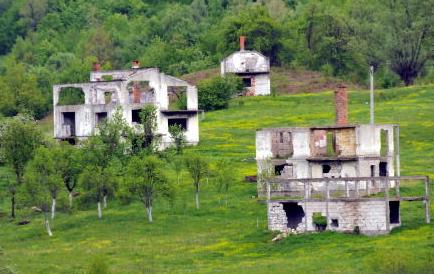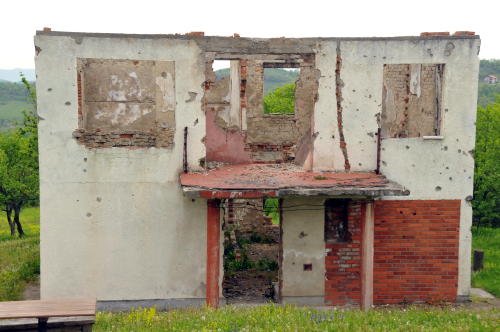 During the 1991-1995 war between the Croatian Army and Croatian Serb armed forces, aided by the Yugoslav People’s Army, war crimes were committed by both sides. Twenty years later, many of the crimes remain unaddressed, AI says.
During the 1991-1995 war between the Croatian Army and Croatian Serb armed forces, aided by the Yugoslav People’s Army, war crimes were committed by both sides. Twenty years later, many of the crimes remain unaddressed, AI says.
Testimonies of witnesses crucial
Prosecutions of war crimes have been taking place in Croatia, Serbia and Bosnia and Herzegovina as well as before the International Criminal Tribunal for the former Yugoslavia in The Hague (see also here).
In many cases justice for the victims served by the courts was only possible thanks to the courage of the witnesses who were determined to tell the truth about what happened during the war. Their testimonies have been crucial in bringing the perpetrators of war crimes to justice.
However, many of them have been exposed to threats and intimidation or even killed. In Croatia, the authorities have failed to protect the witnesses. By doing, so they have contributed to the atmosphere of fear, which prevents justice.
Levar’s case
Milan Levar was Croat. He was one of the few brave ones determined to tell the truth about war crimes committed against Croatian Serbs by his own, Croatian armed forces.
He was killed by a bomb placed under his car outside his house in Gospić, Croatia on 28 August 2000. Almost 11 years on and the perpetrator of this crime has not been yet brought to justice.
Gospić, Croatia on 28 August 2000. Almost 11 years on and the perpetrator of this crime has not been yet brought to justice.
Milan Levar was killed, because he had publicly campaigned for justice for victims of crimes committed during the 1991-1995 war in Croatia.
He volunteered for the Croatian Army in 1991 when the war started. According to reports, in 1992 he was ordered to round-up Croatian Serbs for execution which he refused. When the war ended he was contacted by the International Criminal Tribunal for the Former Yugoslavia in The Hague and interrogated as a potential witness in 1997 and 1998 in connection with war crimes committed in the Gospić area. He also helped collecting evidence and finding other witnesses who were then interviewed by the Tribunal. He was killed before he managed to give his testimony in the court room.
The investigation into Milan Levar’s death has been so far unsuccessful. The authorities have stopped informing his widow of the progress of the investigation. She herself has received death threats from unknown individuals on several occasions.
Climate of impunity prevails
The lack of progress in the investigation shows the ongoing climate of impunity and a lack of political will in Croatia to deal with the past. This makes witnesses reluctant to testify in front of the Tribunal and the domestic courts in Croatia. In many cases witnesses have refused to testify citing fears for their safety as the main reason.
 One of the concerns voiced by the witnesses is the prevailing impunity of the high profile military and political officials who were in position of power during the war. Despite the existence of publicly available information, including evidence from public court proceedings in Croatia, allegations against many of the officials have not been investigated.
One of the concerns voiced by the witnesses is the prevailing impunity of the high profile military and political officials who were in position of power during the war. Despite the existence of publicly available information, including evidence from public court proceedings in Croatia, allegations against many of the officials have not been investigated.
Without evidence provided by witnesses it is impossible to prosecute many of the remaining war crimes cases, leaving the victims and their families without the possibility to receive justice.
Take action!
Write to the Chief State Prosecutor of Croatia, Mladen Bajić, and urge him to immediately address the ongoing impunity for war crimes in Croatia. Send copies to the Prime Minister, Jadranka Kosor and to the Minister iof Justice, Dražen Bošnjaković.
You can send an appeal online here.
Related articles:
Documenta publishes a report on the monitoring of war crime trials in Croatia





